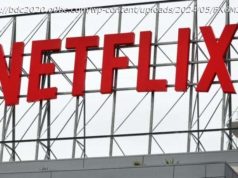On this „Face the Nation“ broadcast, Dr. Anthony Fauci and Governor Phil Murphy join Margaret Brennan.
On this „Face the Nation“ broadcast moderated by Margaret Brennan: Click here to browse full transcripts of „Face the Nation.“ MARGARET BRENNAN: I’m Margaret Brennan in Washington. And this week on FACE THE NATION, as America remembers the September 11th attacks, Presidents, past and present, urged a divided America to unite, and President Biden tries to force the hesitant to get their vaccine. America closed one chapter in its fight against terrorism yesterday, marking two decades since the attacks that claimed nearly three thousand lives. (Crowd singing) MARGARET BRENNAN: And for the first time in twenty years, there are no U.S. troops in Afghanistan, but the Taliban is back in control, just as they were when they harbored Osama bin Laden there twenty years ago. PRESIDENT JOE BIDEN: Can al Qaeda come back? Yeah. But guess what? It’s already back other places. What’s the strategy? MARGARET BRENNAN: Now U.S. intelligence officials are warning that America’s chaotic withdrawal from that war is inspiring terrorist groups abroad. And as the President who first launched the war on terror warned, the hate espoused by extremists at home is now eerily similar. PRESIDENT GEORGE W. BUSH: There is little cultural overlap between violent extremists abroad and violent extremists at home, in their determination to defile national symbols, they are children of the same foul spirit. MARGARET BRENNAN: We’ll hear from a key Republican voice on foreign policy, Illinois Congressman Adam Kinzinger, a veteran of the wars in Iraq and Afghanistan. We’ll discuss the security threats facing America now with former acting CIA Director Michael Morell. Then, as COVID’s ferocious Delta variant continues to spread, President Biden issues a sweeping vaccine mandate that may rest on shaky legal ground. PRESIDENT JOE BIDEN: We’ve been patient, but our patience is wearing thin. And your refusal has cost all of us. MARGARET BRENNAN: One group that clearly needs protection–children, too young to be vaccinated, who are being hospitalized with COVID in record numbers, as the school year gets into full swing. We’ll talk with the top pediatrician at Texas Children’s Hospital, Doctor James Versalovic. And we’ll check in with Alberto Carvalho, the superintendent of schools in Florida’s Miami-Dade County, where at least thirteen school employees have passed away from coronavirus in just the last month. And we’ll get the latest on a timeline for children’s COVID vaccines from former FDA Commissioner Doctor Scott Gottlieb. It’s all just ahead on FACE THE NATION. Good morning, and welcome to FACE THE NATION. Yesterday, Americans marked a somber milestone: Twenty years since the September 11th attack, an event that upended American life and launched the war on terror. We’ll have more on national security later in the broadcast. But this morning, Americans are waking up to another threat–the Delta variant continues its unrelenting spread. President Biden now faces a slowing economy and his frustration with the eighty million Americans who remain unvaccinated is clear. He’s now requiring federal workers to take the vaccine and mandating some private businesses to do so, too, or submit to weekly testing. But that order could soon face legal challenges. CBS senior national correspondent Mark Strassmann is in Atlanta with the latest on COVID’s impact. (Begin VT) MARK STRASSMANN (CBS News Senior National Correspondent): COVID’s back to school lesson: How vulnerable kids are, making up more than one in four new COVID cases. CLINT SAAVEDRA: How are the parents– how are they okay with that? How are they just okay with that over a mask? MARK STRASSMANN: For the sickest COVID kids, hospitalization rates spiked almost ten-fold since late June. Alarm in Los Angeles, America’s second largest school district just mandated vaccinations for eligible students. JACKIE GOLDBERG (L.A. Unified School District Board Member): That’s why there isn’t measles and mumps and rubella in our schools, because we vaccinate. And we require it. MARK STRASSMANN: These nine states have banned or restricted school masking mandates, including Florida. On Friday, a judge upheld the governor’s ban. RON DESANTIS: Let the parents make the decision that’s best for their kids. If you want the masks, do it, if you don’t, that’s fine. MARK STRASSMANN: But Florida’s pandemic politics has consequences. In Miami, Abe Coleman, an elementary math teacher for three decades, died of COVID. TANYA JACKSON: He was just a great co-worker to many people, and stayed at the school like a monument. MARK STRASSMANN: Coleman became one of thirteen Miami-Dade teachers and staff to die of the virus already this school year. All of them unvaccinated. COVID also killed more than twenty-four hundred Floridians last week, another state record. Four were children under sixteen. With the unvaccinated, many college campuses have gone from pleading to punishing. Ohio State will deny them housing and in-person classes next spring. At Quinnipiac University, fines of up to two hundred dollars a week. More than seven hundred colleges and universities have mandated vaccines. MAN: I think it’s a massive overstep of their authority. MARK STRASSMANN: But this ICU in Boise, Idaho, largely reflects COVID America today. Every COVID patient is unvaccinated. WOMAN: And they all ask, well, what could I have done? Will the vaccine save them now? No. (End VT) MARK STRASSMANN: Pfizer’s vaccine for kids between the ages of five and eleven reportedly could get FDA approval by the end of next month. Communities like Metro Atlanta could use the help. Roughly twenty-five thousand kids have tested positive in the first six weeks of school. Margaret. MARGARET BRENNAN: Mark Strassmann, thank you very much. Well, we want to go now to former FDA Commissioner Doctor Scott Gottlieb, who sits on the board of Pfizer. He’s got a new book coming out to you next week, „Uncontrolled Spread: Why COVID 19 Crushed Us and How We Can Defeat the Next Pandemic.“ Scott, it is great to see you again. SCOTT GOTTLIEB, MD (Former FDA Commissioner/@ScottGottliebMD): Good to see you. MARGARET BRENNAN: Look, states can mandate vaccines. Federal government has never done something like this before, outside of the U.S. military. The Republican governor of Arkansas is on TV today, saying this is going to backfire. He’s trying to convince his constituents to take the vaccine and because the federal government is telling them to, he says it’s going to be even harder. Practically speaking, does this mandate make sense? SCOTT GOTTLIEB, M.D.: I think the downside of this mandate in terms of hardening positions and taking something that was subtly political and making it overtly political could outweigh any of the benefits that we hope to achieve. If you look at where we are right now, right now, seventy-five percent of adults over the age of eighteen have had at least one dose of the vaccine. Most of them will complete the series. That’s a very high number of people vaccinated owing to the good work of the Biden administration. We’re not going to get above ninety percent. We don’t even really reach ninety percent with childhood immunizations, which are mandated. So, we’re going to get somewhere between eighty and ninety percent. I– I would state that we would have gotten to eighty percent just on our current trajectory in short order. Perhaps with a mandate on small businesses, eventually you get to something akin to eighty-five percent, but it’s going to be slow because this is going to get litigated. It takes OSHA time to implement regulations. You’ll have to put in place guidance, give businesses a grace period and then figure out what the enforcement mechanism is going to be in. In the near term, a lot of businesses that might have mandated vaccines are now going to sit on their hands and say, I’m going to wait for OSHA to tell me just how to do it– MARGARET BRENNAN: Right. SCOTT GOTTLIEB, M.D.: –and give me more political cover. So, in the near term, you could actually discourage some vaccination. MARGARET BRENNAN: Right. OSHA, that’s going to come from the Labor Department, and they haven’t filed that yet. SCOTT GOTTLIEB, M.D.: Right. MARGARET BRENNAN: That’s what you are referring to. But the President, what he said was mandating a vaccine for businesses and if employees at those businesses don’t take it, the alternative is to get weekly testing. Do we have the testing capacity in the country to do that right now? SCOTT GOTTLIEB, M.D.: We would have the testing capacity to do it, but it puts a big burden on businesses to have to operationalize that and determine what they’re going to do with the result. So, I think a lot of businesses are going to opt to try to force workers to get vaccinated if in fact this ever goes into effect. But again– MARGARET BRENNAN: Many were. SCOTT GOTTLIEB, M.D.: –we are looking at a very long timeline here. Excuse me. MARGARET BRENNAN: Many already were. SCOTT GOTTLIEB, M.D.: Many– many were, exactly. Many– many businesses are, and I think that the federal government’s action to require federal employees to get vaccinated, which is probably well within their purview to do that in a function of federal readiness that gives plenty of political cover for more businesses, more private sector businesses to start to implement their own mandate. So, I don’t think we had to reach down to the– MARGARET BRENNAN: Mm-Hm. SCOTT GOTTLIEB, M.D.: –level of small businesses with a hundred or more employees and put a federal requirement on them. I don’t think the federal government should be dictating this. I also don’t think governors should be preventing small businesses from making these determinations on their own. We should leave these decisions to communities, local communities and businesses to make assessments on what their risk is, what their settings are, how much precautions they can put in– MARGARET BRENNAN: Yeah. SCOTT GOTTLIEB, M.D.: –and whether vaccine requirements are an absolute necessary– necessary to– to protect people in those settings. MARGARET BRENNAN: Well, kids still can’t get a vaccine if they’re between the ages of five and eleven. When will it be available to them? SCOTT GOTTLIEB, M.D.: Well, I’m more familiar with the process for Pfizer, the company I’m on the board of. Pfizer has said that they’re going to have data before the end of September. They could be ready to file within days of having that data, so they’ll file very quickly with the FDA. FDA has said it’s going to be a matter of weeks, not months, in terms of their evaluation of that clinical data to make a determination whether they’re going to authorize vaccines for kids aged five to eleven. I interpret that to mean perhaps four weeks, maybe six weeks. But I think in a best-case scenario, given that timeline they’ve just laid out, you could potentially have a vaccine available to children aged five to eleven by Halloween. If everything goes well, the Pfizer data package is in order, and FDA ultimately makes a positive determination, I have confidence in Pfizer in terms of the data that they’ve collected. But this is really up to the– the Food and Drug Administration to make an objective determination. MARGARET BRENNAN: Well, then it’s up to parents, whether they want to use a vaccine under emergency use for their children. If you’re a parent, what do you ask your pediatrician and are there options out there? SCOTT GOTTLIEB, M.D.: Yeah, I think parents should look at this as a decision where there is some latitude in terms of what you do with your child, and you really should consult your pediatrician and have a conversation. Parents have understandable concerns about putting any new product, new medical product in a child. It’s not just this vaccine. It’s any vaccine or any therapeutic, and I understand those concerns. This isn’t a binary decision. It’s not a choice of do I vaccinate my child or not? There’s different ways to approach vaccination. You could go with one dose for now. You could potentially wait for the lower dose vaccine to be available, and some pediatricians may make that judgment. If your child’s already had COVID, one dose may be sufficient. You could space the doses out more. So, there’s a lot of discretion that pediatricians can exercise, making largely off label judgments, but exercising discretion within the context of what an individual child’s needs are, their risk is, and what the parents‘ concerns are. So, I would urge every parent to have a conversation with pe– their pediatrician. Pediatricians are very good at counseling through these decisions, and I think that they could provide good objective advice to parents. MARGARET BRENNAN: Well, what about the parents themselves? We’ve seen this Israeli data that shows the vaccine may have some waning impact after six months. When is the FDA going to fully approve boosters and if Pfizer’s first out of the gate, as has been reported, when will we see Johnson and Johnson and Moderna follow? SCOTT GOTTLIEB, M.D.: Well, there’s a meeting this Friday of the FDA’s advisory committee to discuss this very issue. The agency could be in a position to act very quickly, depending on what the outcome of that meeting is. If there is a recommendation from the FDA’s external advisors to authorize boosters or licensed boosters, the agency could act very quickly, and then ACIP, the advisory committee to the CDC would meet and make a recommendation about what population should receive boosters. The conventional wisdom is– is that if boosters are approved, it’s probably going to be for people who are more at risk from COVID right now. They’ve already recommended it for those who are immunocompromised, moderately or severely immunocompromised. I think the next tranche would probably be older individuals, particularly individuals who live in congregate settings like nursing homes. And that’s may– that may be what we see next. Pfizer has filed their application with the FDA. I think J&J is going to be in a position also to file a package with the FDA soon as well. MARGARET BRENNAN: Mm-Hm. SCOTT GOTTLIEB, M.D.: They have very good data also looking at boosters. They’ve showed a good response. And I think that vaccine also could be in a position to get authorized by FDA in short order. MARGARET BRENNAN: Also, very quickly, governors issue mandates for kids to get vaccines. Anyone sending their kid in the classroom has to do that. Do you expect COVID to be any different? SCOTT GOTTLIEB, M.D.: In time, no, I think you’re going to see more local school districts and governors make those recommendations. Eventually ACIP is going to make a recommendation about whether this should be included in the childhood immunization schedule. My guess is they’re waiting for more of the vaccines to be fully licensed to make that kind of a recommendation. But I would expect this eventually to be required as part of the childhood immunization schedule. MARGARET BRENNAN: Well, Doctor Gottlieb, always good to talk to you. And FACE THE NATION will be back in one minute. Stay with us. (ANNOUNCEMENTS) MARGARET BRENNAN: Tomorrow, lawmakers will get their chance for the first time to question the Biden administration on that chaotic military withdrawal from Afghanistan. Meanwhile, the Taliban is solidifying control in Kabul, raising their flag over the Afghan presidential palace. Our Charlie D’Agata is in neighboring Pakistan. Charlie, U.S. intelligence is already acknowledging that the victory is inspiring jihadist propaganda. What are you hearing about how the chaos of this withdrawal will impact the U.S.? CHARLIE D’AGATA (CBS News Senior Foreign Correspondent/@charliecbs): Well, Margaret, we have to make clear right way the Taliban are claiming victory, and, of course, that’s going to embolden jihadists in this region, it already has. The priority is an al Qaeda in Afghanistan and here in Pakistan. We have to remember that almost everybody that we have spoken to here and in Afghanistan, including the outgoing Afghan government, if you want to call them that, said al Qaeda is intrinsically linked with the Taliban, in terms of how Afghanistan is now. They are in trouble. I mean, there is a deep humanitarian crisis going on now. So they need an outreach. They need legitimacy from the United States, the international community, but if they don’t get it, there are others that are willing to fill that void. I’m talking about players like Russia and China, who if the Taliban don’t play by the rules in international standards, they are there to move in.






